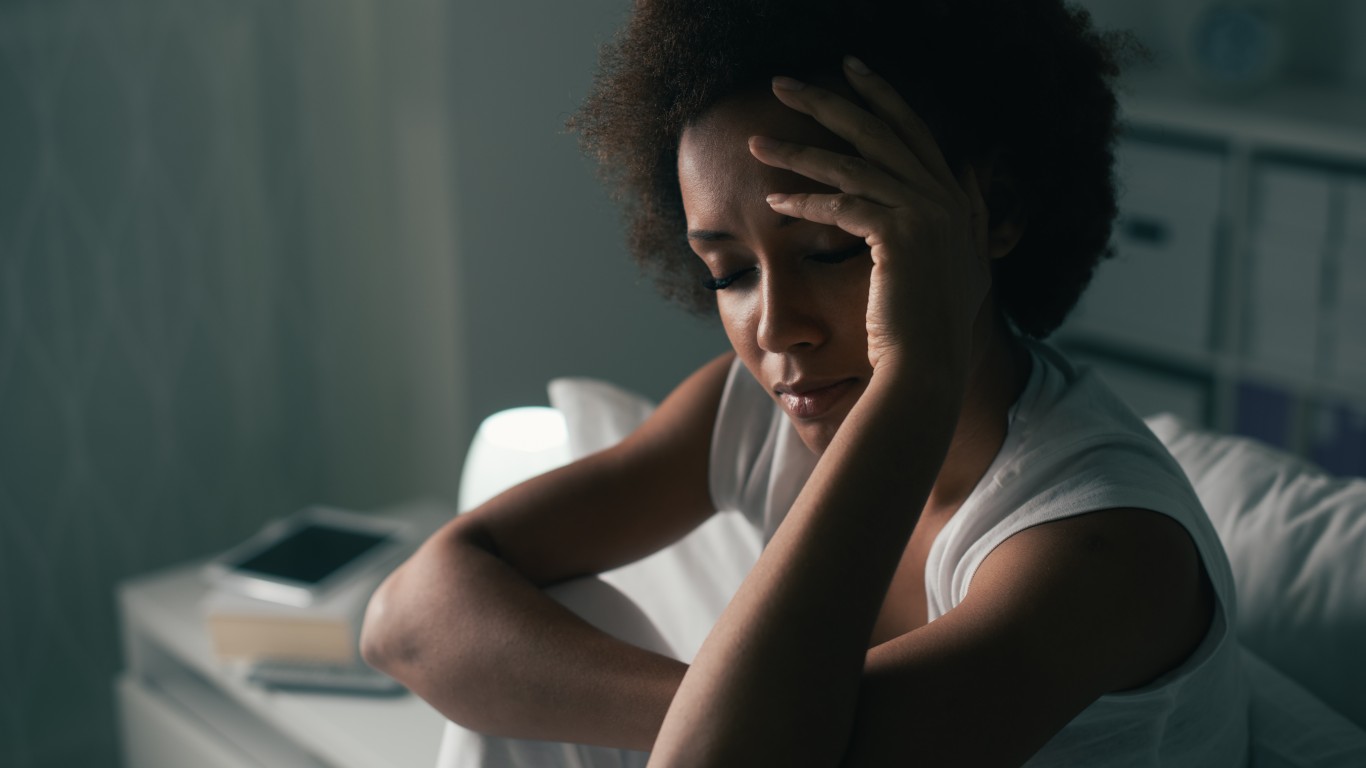
Sleep is critical for maintaining good mental and physical health. Poor sleep patterns are associated with serious health problems, as well as increased stress and risk of accidents. With more than 1 in 3 Americans routinely not getting enough sleep, widespread sleep deprivation is a serious problem in the United States.
According to experts, reasons for insufficient or poor sleep can vary from physiological and psychological problems to personal habits and even bedroom conditions.
To identify the 15 reasons people have trouble sleeping, 24/7 Tempo reviewed several articles published by organizations that specialize in sleep patterns, namely the National Sleep Foundation. We also interviewed founder of NYC Sleep Doctor and clinical psychologist, Dr. Janet Kennedy.
The recommended amount of sleep for adults is seven hours or more. However, Dr. Kennedy explained the suggested amount is n
ot applicable to all, and those who need less sleep may actually hinder their sleep cycle if they try to tack on more.
“Most people need seven to about eight and a half hours of sleep a night, but the problem with focusing so much on a specific number is that people do a lot of damage to their sleep trying to achieve a number that isn’t right for them,” Dr. Kennedy said.
Conversely, some people require more sleep. Because the length of sleep each person needs varies, Dr. Kennedy suggests placing less emphasis on how many hours we sleep each night and more on the quality of sleep.
“An optimal night’s sleep is the amount of sleep a person needs to feel rested during the day so they don’t fall asleep spontaneously, feel reasonably alert and happy, able to function comfortably, and they can achieve that without assistance of substances, whether it may be alcohol or medications,” said Dr. Kennedy.
Many factors contribute to low-quality sleep, including sleep disorders, consuming stimulants like caffeine and nicotine too close to bedtime, and even the temperature of the bedroom. Here are 21 things that happen to your body when you don’t get enough sleep.
Click here to see the 14 reasons you’re not getting enough sleep
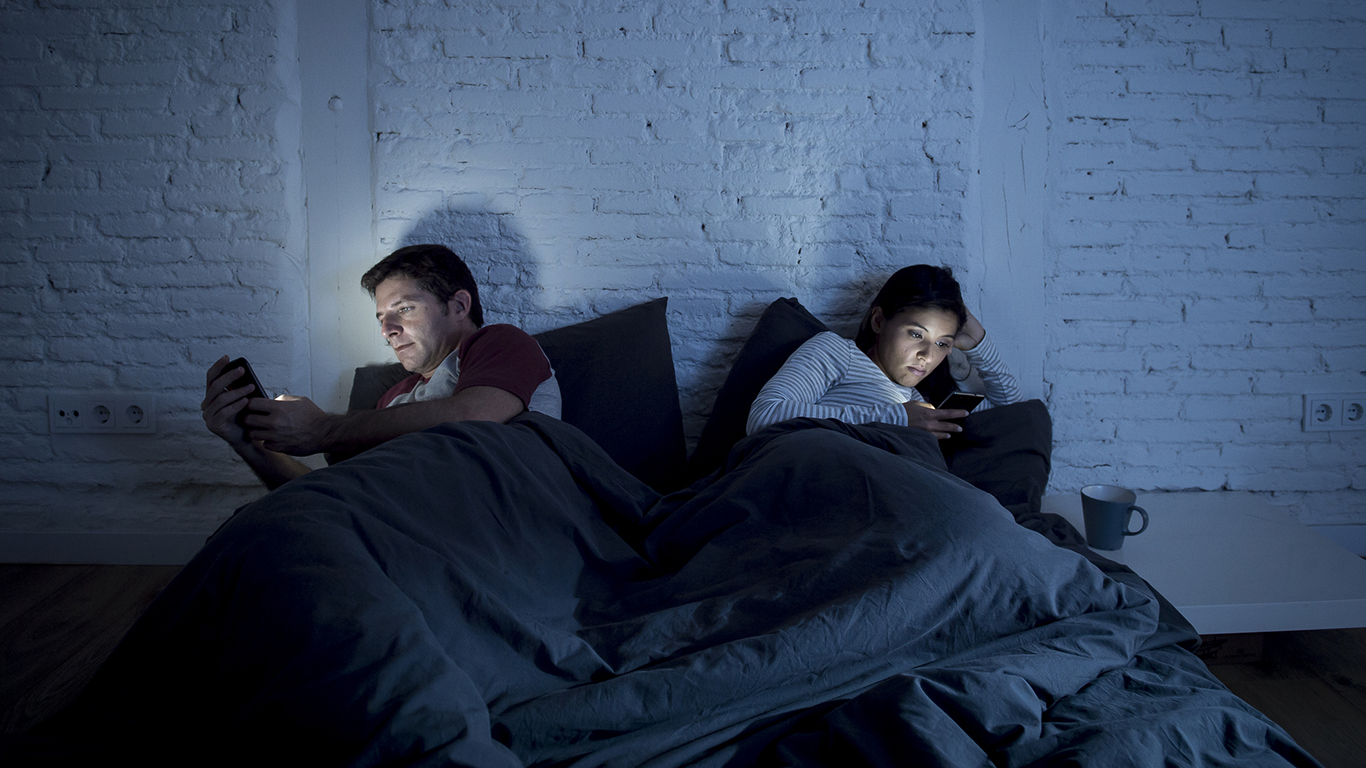
1. Phone Use Before Bed
More than 75% of adults nationwide own smartphones. While cell phones today are an integral part of life, phone use right before bed is not recommended. Clinical psychologist Dr. Kennedy suggests putting phones and other devices away an hour prior to bedtime. “Technology can actually delay your body clock, [so] you won’t get tired when you normally would,” she said.
Several studies have shown that the light emitted by device screens can actually trick the brain into thinking it should be waking up instead of winding down. This causes the brain to reduce production of melatonin — the hormone responsible for regulating sleep — a phenomenon referred to as melatonin suppression.
[in-text-ad]
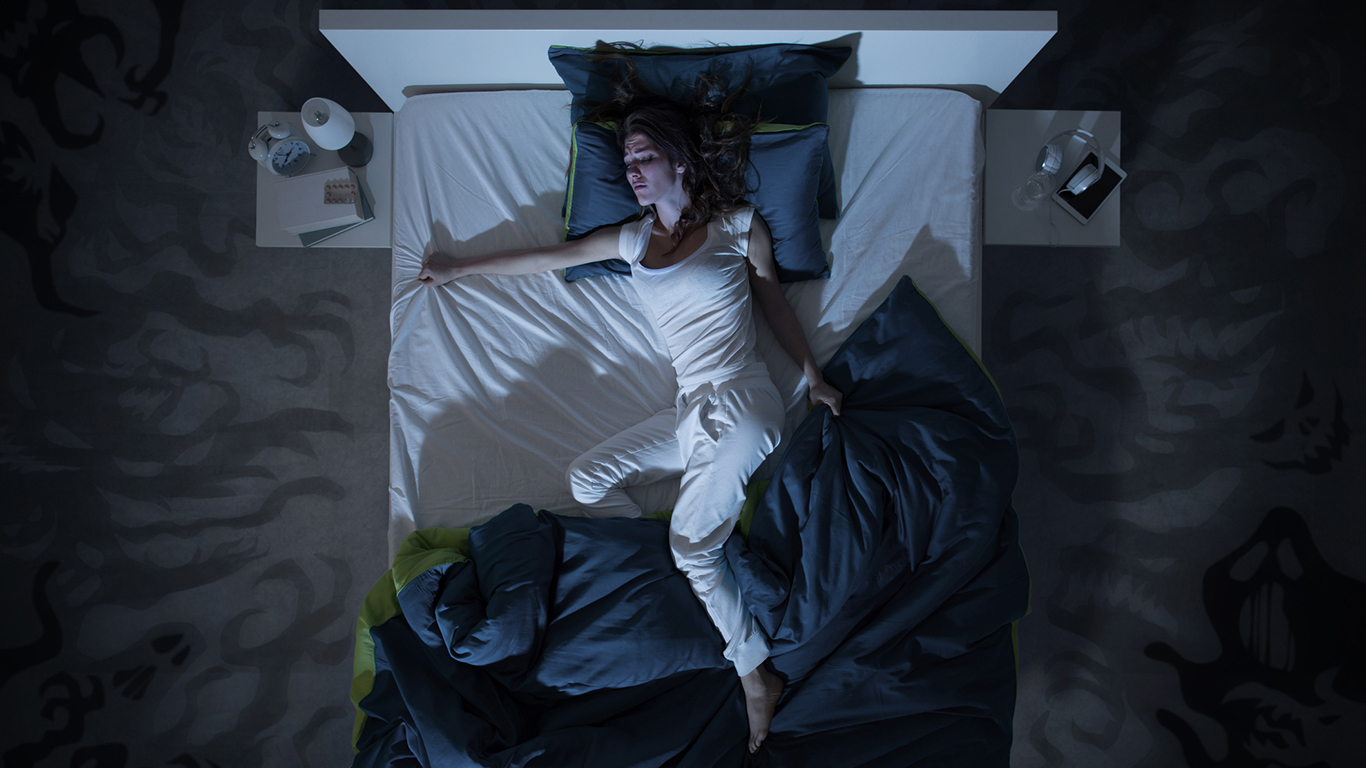
2. Room Temperature
It is all too common to wake up in the middle of the night sweating from the summer heat or shivering from a winter chill. Being too hot or too cold can certainly affect the sleep cycle. The National Sleep Foundation says the ideal bedroom temperature is between 60 and 67 degrees Fahrenheit for quality sleep.
In order to fall asleep, the body’s temperature decreases, and continues to drop at each stage until it reaches the rapid eye movement (REM) stage. For this reason, sleeping in a relatively cool room can help you fall asleep faster. But room temperatures that fall too far below or rise above the suggested temperature can interfere with the sleep cycle.
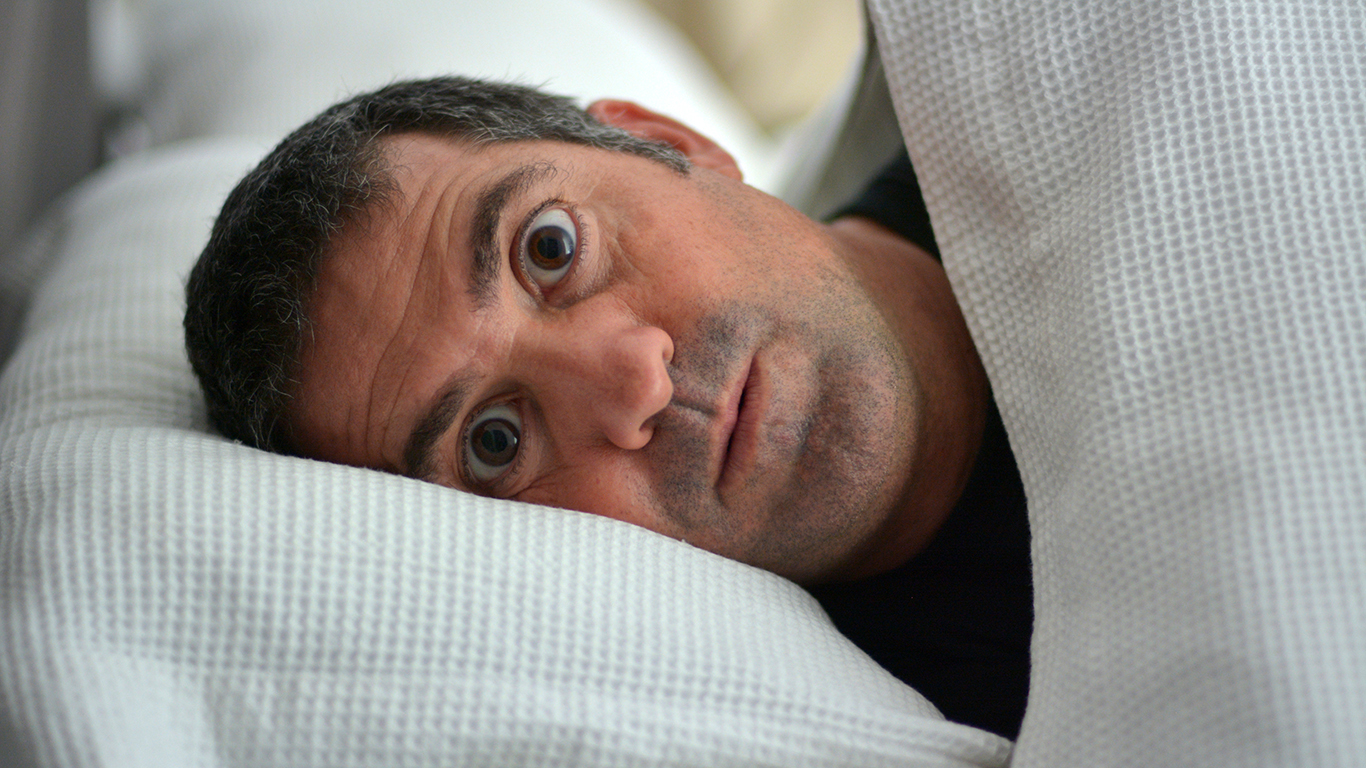
3. Caffeine Consumption
Coffee, tea, and even chocolate contain caffeine, which can interfere with the sleep cycle. Coffee is one of the most caffeinated drinks, with 95-165 mg of caffeine per cup, depending on the brew. Premium coffee beverages and energy drinks, which are increasing in popularity, often have even more caffeine. Black tea contains less than half that amount, at 25-48 mg of caffeine per cup. In addition to the type of beverage consumed, age, time of consumption, and possibly even genetics are among the factors that can dictate the effect of caffeine on an individual. Consuming caffeine even six hours before bed can reduce sleep time by more than an hour, according to a study published in the Journal of Clinical Sleep Medicine.
Experts recommend cutting off coffee consumption early in the afternoon to avoid the stimulant’s disruptive effects on good sleep.
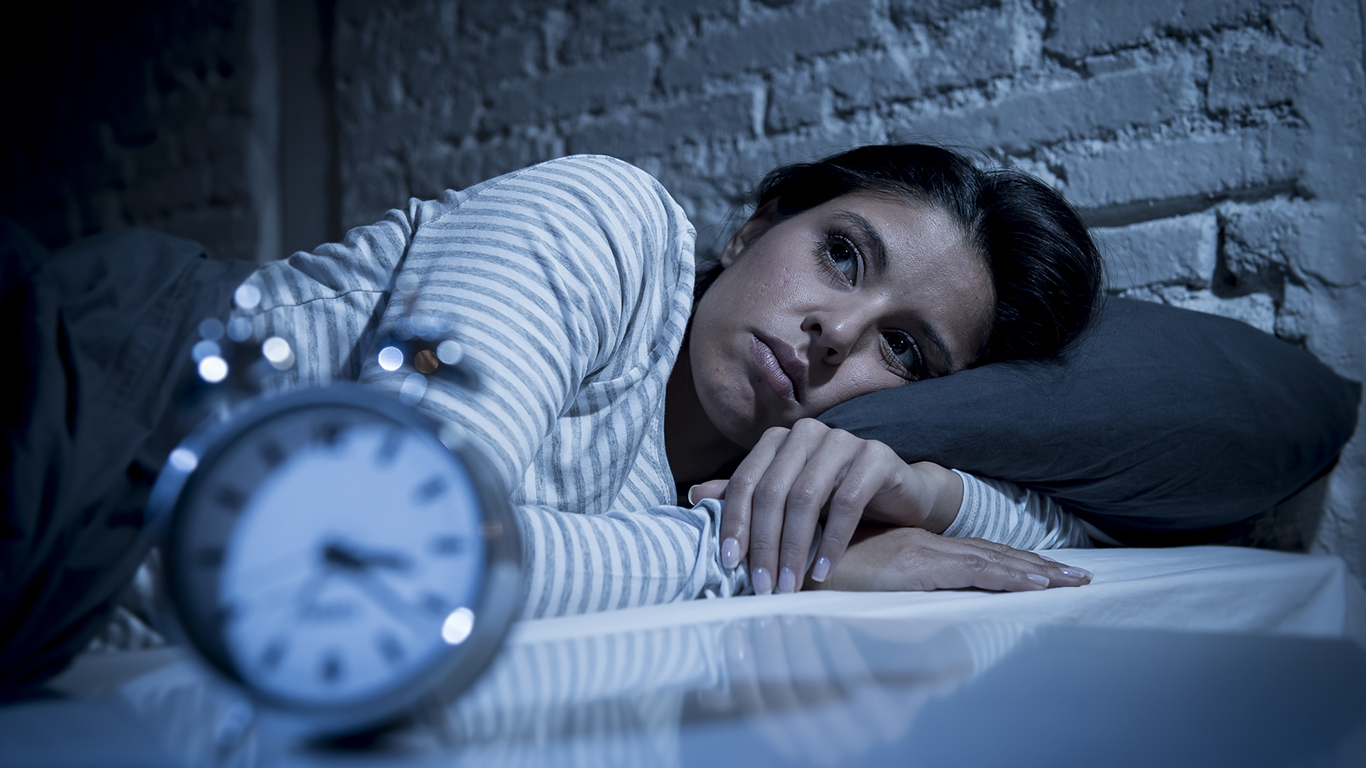
4. Sleep Conditions
Those who are aware they have a sleep condition know why they have trouble getting quality rest. But many others may not be aware they have a condition. For example, while most people have trouble sleeping from time to time, the recurring struggle to sleep is often the result of a sleep disorder: insomnia. It is the most common sleep disorder according to the Journal of Clinical Sleep Medicine. Insomnia can last a short time or, when it is chronic, for longer periods. Often, other physiological or psychological conditions may cause the insomnia.
Similarly, snoring, while often a mere annoyance, can be a symptom of obstructive sleep apnea, one of the most common sleep disorders. For individuals with obstructive sleep apnea, snoring means difficulty breathing, with repeated, nightly interruptions.
[in-text-ad-2]

5. Alcohol
While having a few glasses of wine may make you fall asleep faster, alcohol consumption can disrupt the sleep cycle. People often wake up in the middle of the night after drinking alcoholic beverages. Alcohol consumption increases the production of the sleep-inducing chemical adenosine, which causes drowsiness. When the effect wears off, sleepiness leaves just as fast as it came on, causing the person to wake up hours before a full night sleep. Alcohol is also known to prevent the REM stage of sleep, a critical phase of the sleep cycle that involves consolidating memories into long term memory.
Of course, one of the more obvious effects of drinking alcohol — a diuretic — is the need to use the restroom, which can disrupt the sleep cycle several times throughout the night.

6. Inconsistent Bedtime
Not everyone works a standard nine-to-five shift, and depending on the profession, shifts can rotate. For those who work night and day shifts, it can be extremely hard to adjust to a normal sleep schedule. This abnormal, inconsistent schedule can lead to what the NSF refers to as shift work disorder, which can lead to chronic sleep deprivation and insomnia.
More generally, taking lengthy naps can contribute to poor sleep habits. This is not to say napping should be cut out all together, however. The NSF suggests a short nap of 20-30 minutes may improve one’s mood, energy levels, and focus. The NSF recommends capping that nap at 30 minutes and taking it at least four hours before bedtime for optimal sleep at night.
[in-text-ad]
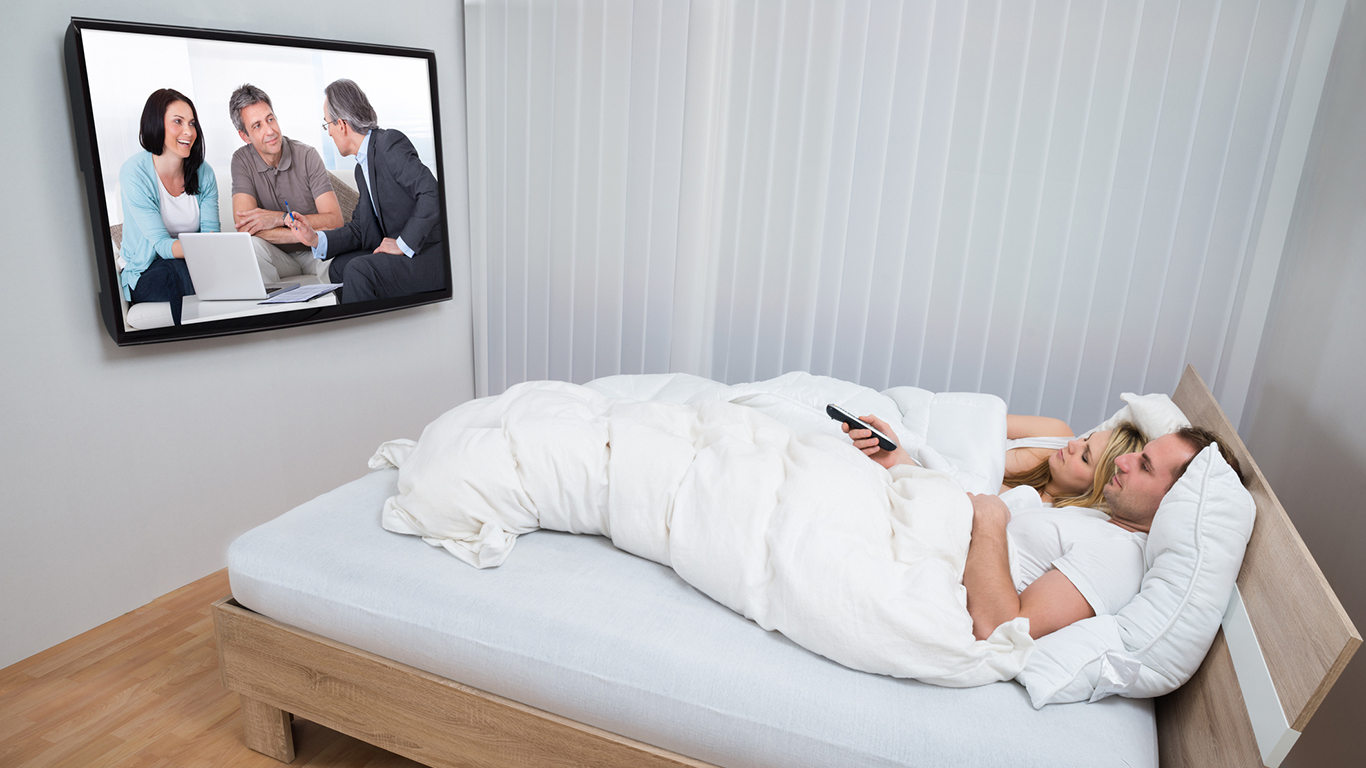
7. Keeping Lights On
Just as sunlight signals our brain to wake up, so do bright lights. Trying to fall asleep with lights on is counterproductive because it makes the brain think it needs to stay awake. The NSF recommends dimming or even turning off lights to achieve a more relaxing environment. This same concept also pertains to television, computer, and phone screens.
Another form of light that can hinder the ability to relax and initiate sleep is watching the minutes or — even worse — the seconds go by on your digital alarm clock. Not only is the light distracting, but also watching time pass can increase stress levels, making it harder to fall asleep, says the NSF.
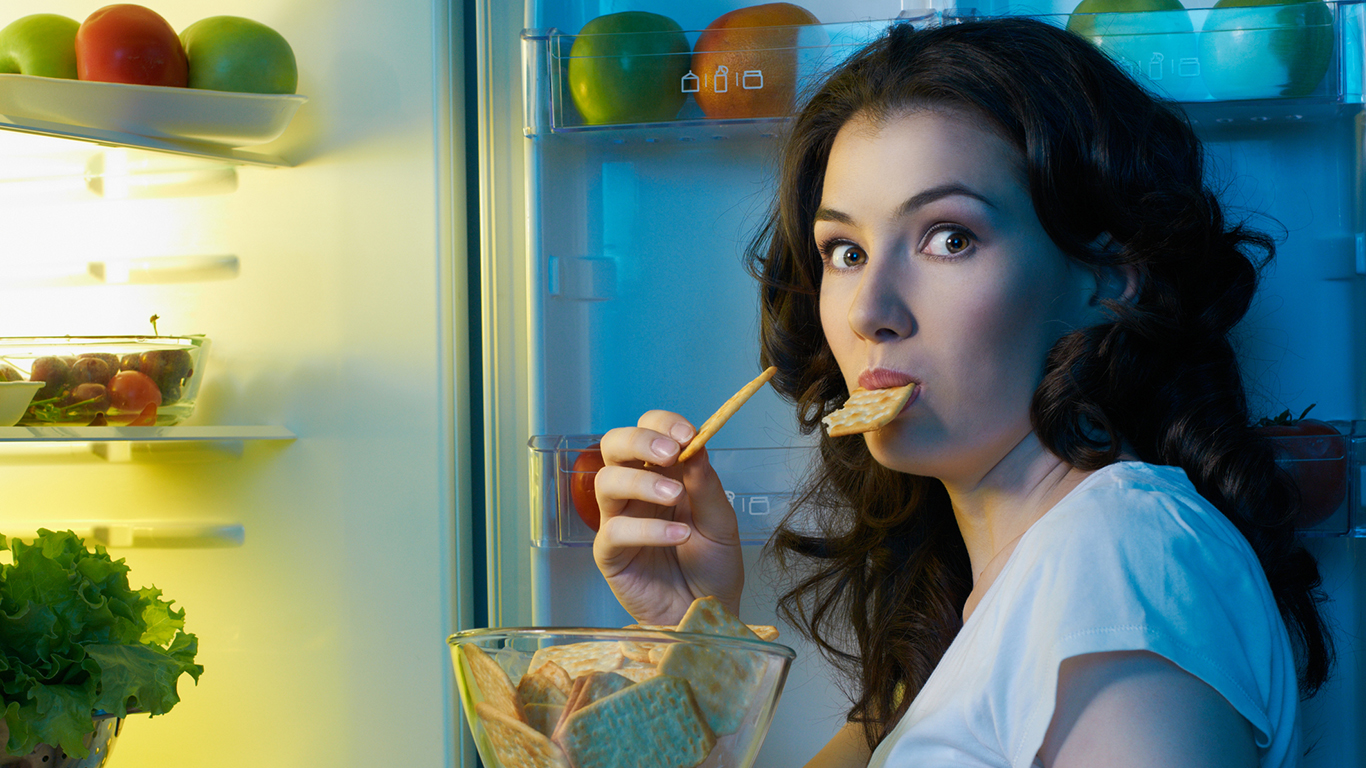
8. Going To Bed Hungry
Late-night eating often gets a bad reputation, with several studies showing it can lead to weight gain over time. On the other hand, going to bed hungry can be detrimental to your sleep — and poor sleep may also contribute to weight gain. Going to bed on a growling stomach can lead to tossing and turning until sunrise. Incessant hunger pangs may not only cost a night’s worth of quality sleep, but also may make the person more likely to binge eat later on.
[in-text-ad-2]
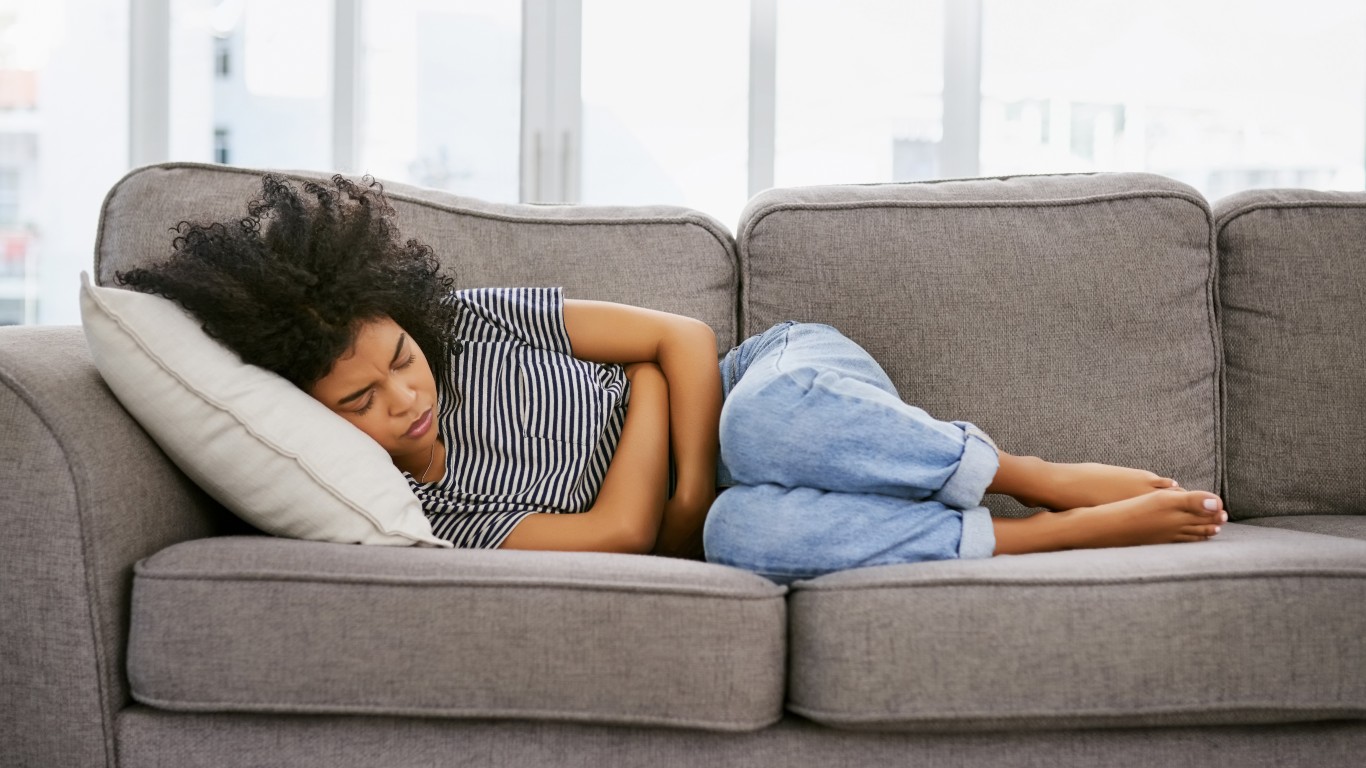
9. Hormonal Changes
According to the NSF, women report having issues sleeping during the days leading up to their period and during the first few days of their cycle. A woman’s hormones fluctuate throughout the menstrual cycle, leading to several symptoms on some days, including elevated body temperature, feelings of depression and anxiety, fatigue, abdominal cramps, and other aches. All of these can sabotage the sleep cycle. It is even more important for a woman to take the time to wind down before bed just before or during her period. Dr. Kennedy suggests reading fiction, meditating, or doing yoga to help relax the mind and body.
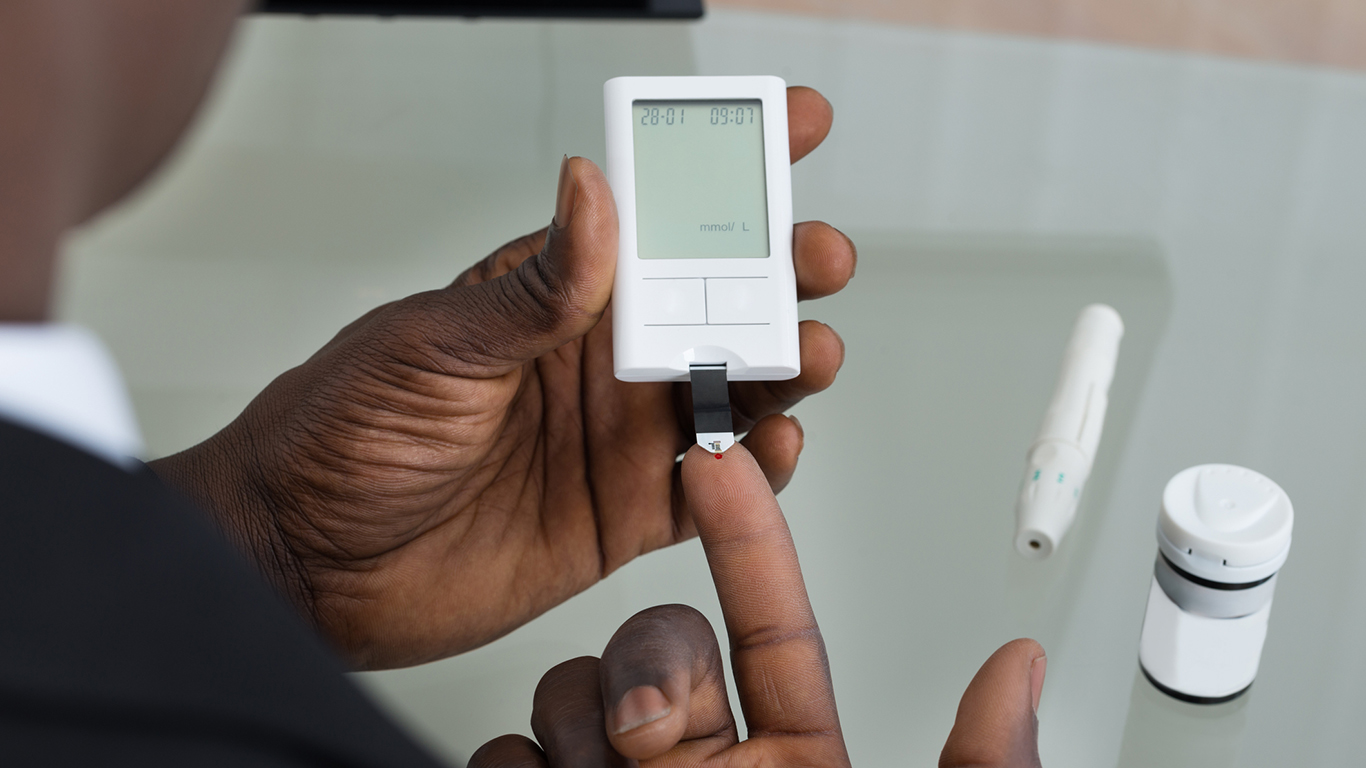
10. Blood Sugar Levels
While perhaps not as obvious as some of the other ways sleep can be disturbed, blood sugar levels can also affect sleep quality. Monitoring blood sugar, or glucose, levels is more applicable to people with diabetes, who are more apt to experience serious dips or spikes in their blood glucose levels during the night.
To maintain healthy blood glucose levels throughout the sleep cycle, it is important for people with diabetes — especially type 1 — to check their blood sugar before bed and act accordingly if the level is too high or low. It is also recommended for people with diabetes to avoid late-night exercise and drinking alcohol before bed, both of which cause blood glucose levels to drop.
[in-text-ad]
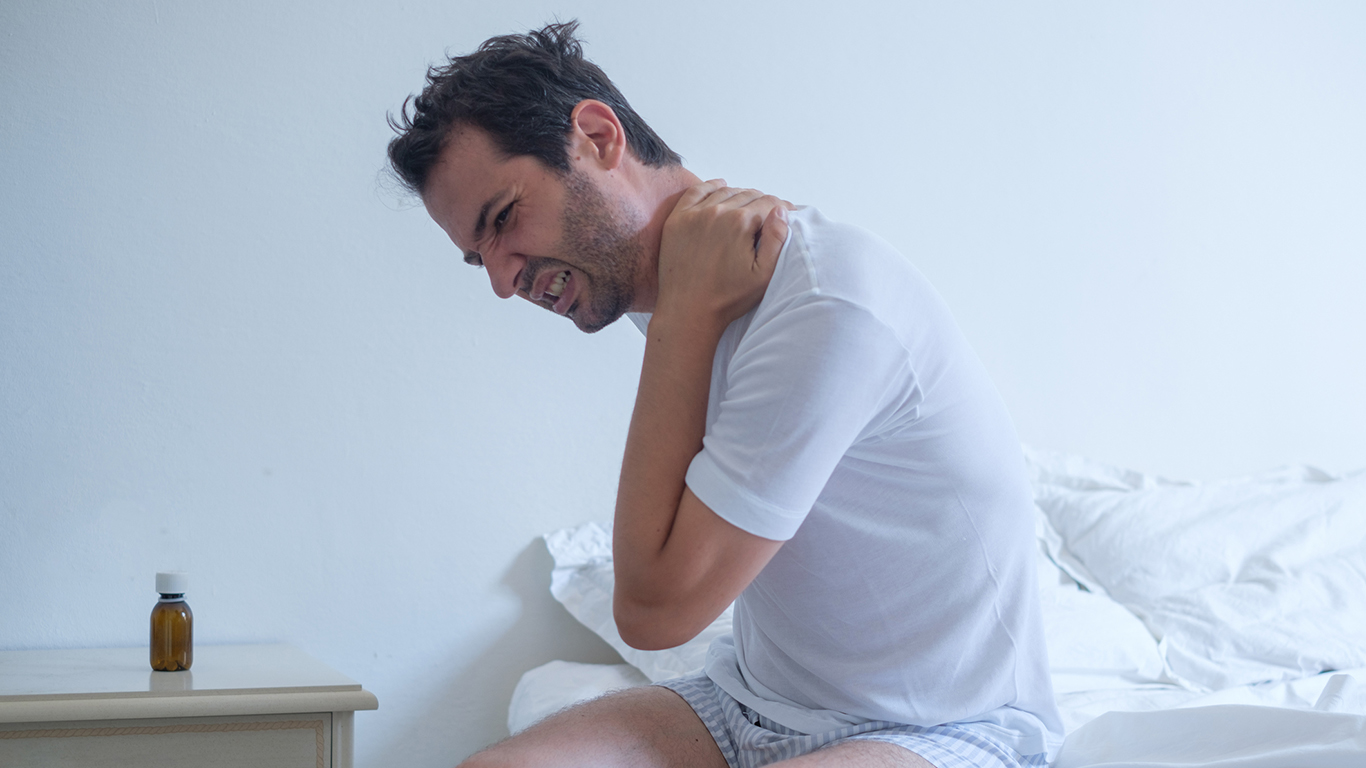
11. Old Or Uncomfortable Bed
It’s not news that a comfortable mattress helps with a good night’s sleep, but many might not even realize their mattress might be culpable for their tossing and turning. Old mattresses tend to lose their give, and become less comfortable in imperceptible ways that can affect sleep.
An old mattress has collected a wealth of dead skin, body oils, and dust mites over the years. Experts from The Ohio State University have found that a typical mattress can house up to 10 million dust mites. This can be detrimental for those with asthma especially because dust mites can make it harder for them to breathe and, ultimately, disrupt their sleep cycle.

12. Exercising Too Close To Bedtime
Late night gym sessions or any high-intensity exercise too close to bedtime might disrupt the quality of sleep. Dr. Kennedy says the rule of thumb used to be to stop exercising no less than four hours prior to going to sleep in order to allow adequate time for the body to settle back into a normal heart rate and body temperature. However, she points out that exercise affects everyone a little differently.
“Some people are less sensitive to [exercise], and their body returns to normal more quickly, or their sleep is not affected by it,” said Dr. Kennedy. “So, I wouldn’t run 10 miles at 10 o’clock and then try to go to bed at 11.” She added, “There’s not such a hard and fast rule anymore on that, but if you’re struggling with sleep then it’s certainly better to be conservative and dial that back.”

13. Physical Inactivity
While exercising too close to bedtime can be disruptive to a good night’s sleep, not exercising at all during the day can also lead to inadequate sleep. The best time to exercise is during the morning or afternoon, both of which can improve sleep. According to the NSF, people who work out in the morning reportedly experience deeper and longer sleep cycles and spend 75% more time in the most restorative stages of sleep compared with those who work out later in the day.
Working out in the afternoon also has its advantages. Our body temperatures tend to be a bit higher midday, unlike when we first rise out of bed. This enables our muscles to work more efficiently, which yields to a stronger athletic performance. Working out also raises body temperature for up to five hours. So finishing a workout at 5 p.m. will allow the body temperature to drop back to normal typically no later than 10 p.m., which signals the body to start winding down. Exercise also reduces stress, another factor that contributes to sleepless nights.
[in-text-ad-2]

14. Stress
An anxious mind, ridden with worry and scattered thoughts, can disturb the sleep cycle. Not only does stress contribute to lack of sleep, but sleep deprivation can heighten stress levels. In a survey conducted by the American Psychological Association, 21% of adults reported feeling more stressed when they did not get enough sleep. However, there are certain habits people can adopt to alleviate stress and encourage relaxation prior to bedtime.
“A very basic strategy that I love, and recommend to everyone, is just reading an actual book, preferably fiction and definitely not self help,” said Dr. Kennedy.
Before going to bed, Dr. Kennedy also encourages people to write down what they accomplished during the day, as well as what they need to accomplish tomorrow, into what she calls a work journal. The stress of future tasks often keeps people up during the night. Writing down these tasks relieves the brain of the stress of remembering it all and ultimately allows for deeper sleep.
Take This Retirement Quiz To Get Matched With An Advisor Now (Sponsored)
Are you ready for retirement? Planning for retirement can be overwhelming, that’s why it could be a good idea to speak to a fiduciary financial advisor about your goals today.
Start by taking this retirement quiz right here from SmartAsset that will match you with up to 3 financial advisors that serve your area and beyond in 5 minutes. Smart Asset is now matching over 50,000 people a month.
Click here now to get started.
Thank you for reading! Have some feedback for us?
Contact the 24/7 Wall St. editorial team.
 24/7 Wall St.
24/7 Wall St.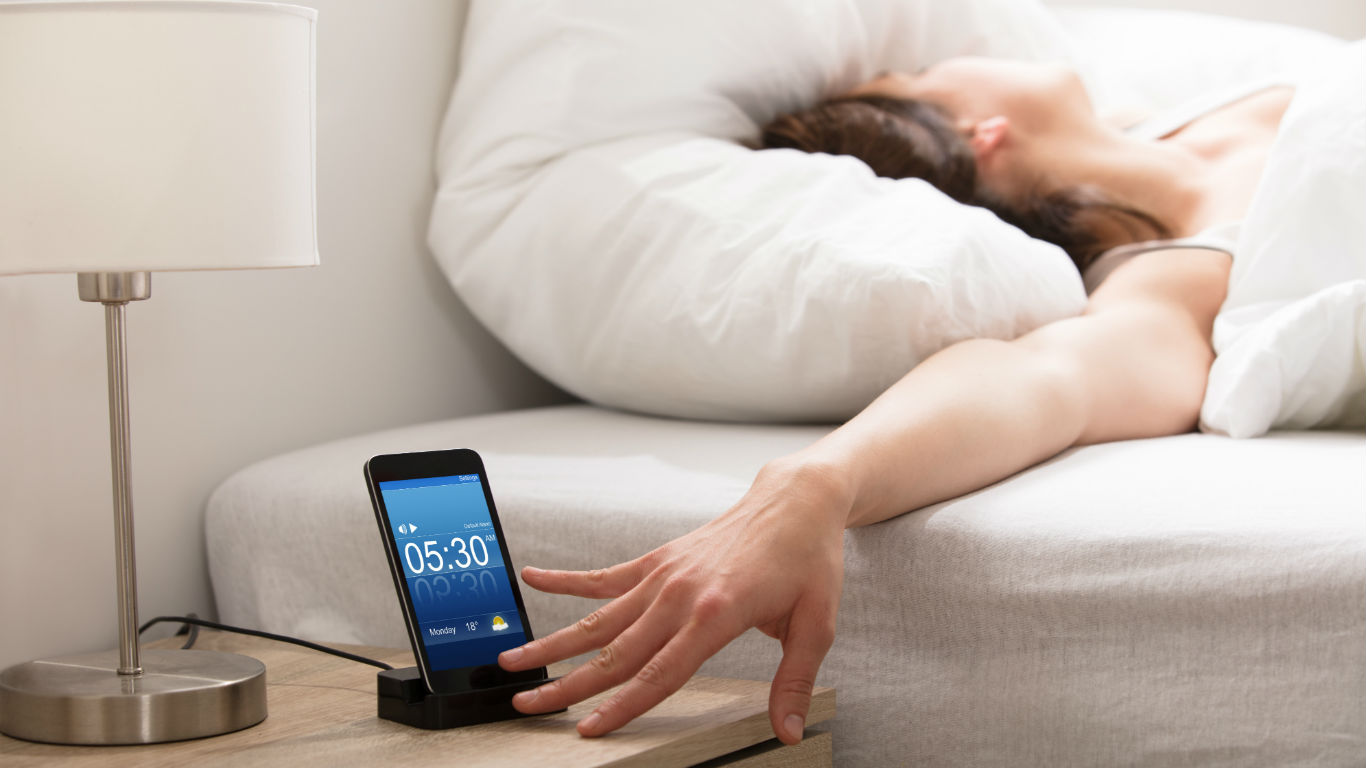 24/7 Wall St.
24/7 Wall St.